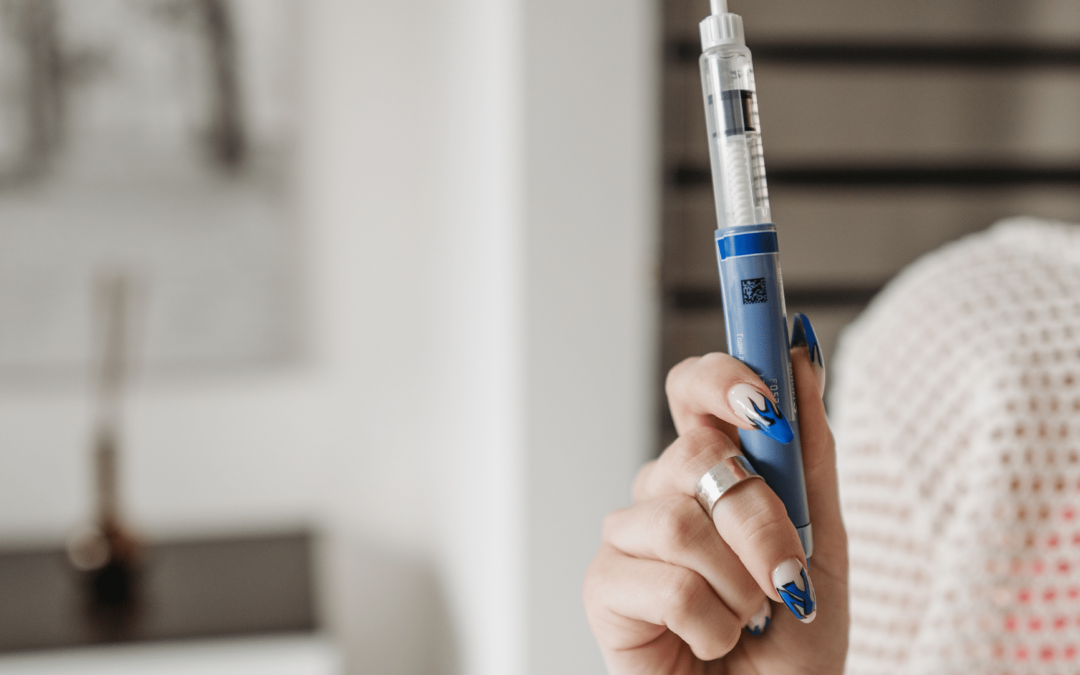The other day, a potential client wanted to know if hypnosis really is safe for them. It’s not an uncommon question and hypnosis surprisingly are not suited for everyone.
To make sure hypnosis is safe for you, I delved into the topic deeply and here are some of the most interesting things I’ve discovered over the years.
Is hypnosis safe? Find out if hypnosis is safe for you!
Based on the data of 400 people, Hauser and colleagues (2016) have found that medical hypnosis is a safe and effective method to be used especially for pain, emotional stress and irritable bowel syndrome. More specifically, hypnosis has already been scientifically proven to have worked in changing eating habits (Barabasz and Spiegel, 1989) and behaviours for a more successful weight loss (Humphreys, 1986) safely and effectively.
The medical director of the Center for Integrative Medicine at Stanford University School of Medicine, Dr David Spiegel explained that hypnosis should be seen as an induced mental state, not exactly the treatment. He added,” People think it is a means of taking away control, but it is a means of enhancing control—over perceptions such as pain, anxiety, habits, stress.”
But hypnosis doesn’t come without a warning.
Let me explain further.
Who shouldn’t use hypnosis?
While experienced differently across various people, hypnosis generally works safely and effectively for most. However, it’s dangerous to use hypnosis when you have schizophrenia or experiencing any other psychotic symptoms.
It is also not recommended to use hypnosis for those who are experiencing psychotic symptoms such as schizophrenia. This is because hypnosis may affect the subconscious negatively and worsen the symptoms further. It is best to seek professional advice before doing any hypnosis at all to avoid its risks.
This one has changed over the years…
Those who experienced Epilepsy and seizures used to be discouraged from hypnosis as we believed the process of hypnosis may disrupt brain waves that could trigger a seizure. Mainly because of outdated methods of inducing hypnosis with strobes, stroboscopes (swirling patterns) and the like.
Therefore. when doing self-hypnosis, it is best to stay away from strobing binaural beats or trance-inducing stroboscopes.
Now it is believed that hypnosis can help with the symptom that may trigger an episode like stress or lack of sleep. One study: The role of hypnosis in the detection of psychogenic seizures suggests hypnosis can be useful as a diagnostic tool in the differentiation of epileptic from psychogenic attacks.
Does hypnosis make you sleep?
Contrary to popular belief, hypnosis doesn’t induce sleeping but rather a trance-like state wherein your mind is deeply relaxed. Neurological findings on brainwave patterns show differences between trance states and sleep.
The main and most beneficial difference between the two is that the trance-like state of mind maintains a channel of communication wherein the conscious mind is bypassed and the therapist can directly communicate with the subconscious. This way, positive suggestions are effectively propagated to take deep root at the core of the mind to create significant changes in the way you think and your habits.
I couldn’t believe what I found next.
What happens when you are hypnotised?
The process of hypnosis is usually direct, concise and specific. Immediately, the therapist will create a rapport to establish your relationship and treatment goals. As the hypnotherapy begins, you should be inducted in the process as your therapist talks in a gentle, soothing tone to enhance relaxation through visualisations.
When you successfully reach the trance state, you’ll feel your conscious mind will be so relaxed that you’ll be able to easily vividly imagine any visualization suggestions your therapist will start to verbally conduct. This process should include achieving your goals, resolving past trauma or emotional barriers and completely abolishing past unhealthy habits.
Stay with me. This gets interesting.
This experience may vary from person to person and it’s also important to note that each person has an extent of “hypnotisability”, according to a Clinical Director of The Lazarus Institute, Clifford N. Lazarus, PhD. The process of hypnotherapy requires one to undergo the process voluntarily and so some people might find hypnosis more effective to them than others.
After processing the suggestions, the therapist will bring you back to your conscious state and many report a feeling of great relief and lightness after their session.
Let’s dive in a little bit deeper into the actual experience.
What does hypnosis feel like?
The trance experience can vary across different experiences but in general, it may start with feelings of introspection and relaxation. This moves on to a deeper feeling of contentment, propagating a profound feeling of peace and serenity.
As you move along deeper into the process, it would induce a lighter feeling but you feel more aware than in the normal conscious state. You’ll be able to effectively and easily follow the path of your therapist’s suggestion, unlocking new beginnings and closing old doors in your mind.
However, if your therapist will make “wrong” suggestions, it’s either you will completely reject it or simply come out of trance. The experience may be so vivid during the trance state but there are chances it will be difficult to recollect afterwards.
Let me be completely honest with you.
are you looking for lasting results?
Are you ready for change but don’t know where to start?
Chat with one of our hypnotherapists today.
Book a FREE discovery call, share what you’re experiencing and see if hypnosis is right for you.
Benefits of Using Hypnosis
Generally, hypnotherapy has been used to treat various conditions such as breaking bad habits, overcoming insomnia, recalling forgotten experiences and pain management. A summary of hypnosis research over the past two decades done by Jensen and colleagues (2017) has revealed that hypnosis shows strong evidence in treating:
- pain
- irritable bowel syndrome
- post-traumatic stress disorder; and
- insomnia.
These findings need further verification through more research on the field. A physician and leading expert in integrative medicine, Dr Andrew Weil, shed some light around the current findings in the practice. “I think it has been insufficiently researched because it has generally not been taken seriously by the research community.”
Some words of caution though.
Risks of Using Hypnosis
As with any extremely powerful process, hypnosis also has some side effects. Some rare cases of adverse reactions to hypnosis include:
- headache
- drowsiness
- dizziness
- anxiety or distress; and
- the creation of false memories.
With massive differences in how each person processes and responds to hypnosis, some people feel psychologically unnerved about being “out of control” or if they didn’t like the suggestions given to them.
It’s also important to remember that serious medical conditions with symptoms related to visualisations present in a person may be triggered dangerously by hypnosis. This doesn’t mean that hypnosis in itself is an unpredictable process but ultimately, it will depend greatly on the expertise of your therapist and both of your co-creative process during the hypnosis.
Let me tell you how it all works simply.
Is this for you?
Since hypnosis is a highly personal experience due to its relative effect that varies greatly from person to person, then it is largely up to you. A recent study has found that only about 10 per cent of the population is highly hypnotisable. The study, however, notes that while the rest of the population can still be hypnotised, they’re however simply less likely receptive to the practice in itself.
The Neuroscience behind Hypnotisability
As it turns out, a neurological study conducted by Stanford University School of Medicine’s Dr David Spiegel, MD just last year, found a difference between the brains of people who can be easily hypnotised and those who can’t be hypnotised. The study examined the activity of three different networks in the brain:
-
- the default-mode, used when the brain is idle
- the executive-control network, involved mainly in decision making; and the
- salience network which is involved in prioritising things based on importance.
With both groups having the same active default mode network, the highly hypnotisable group showed to have more co-activation between the networks involved in decision making and prioritizing.
And then it hit me.
Why You Need a Reliable Hypnotist
However, as hypnosis is a highly co-creative network between the hypnotist and the patient, traits of openness and enhanced imagination may help you propel to the process better. It’s also important to note that finding the right hypnotherapist who suits you best is also a crucial part of the entire process.
Find one with good credentials and you find easy to be comfortable with, along with apparent knowledge in the practice. This way, your mind will not be distracted by doubts or mistrust when you undergo the process as these might interfere with the effectivity of hypnosis. Ultimately, one can make the most out of hypnosis as much as they’re willing to trust the process and committed to achieving their goals.
Related Questions
Is hypnosis a part of psychology?
Hypnosis is a widely recognized psychological phenomenon with valid therapeutic uses in clinical practice. As this is a highly scientific process, it must be conducted by a hypnotherapist with vast knowledge and expertise on the practice along with ample experience.
To maximise the benefits of hypnosis effectively, the hypnotherapist must be able to navigate through the entire process seamlessly, resolving important core psychological problems.
Are there any negative effects to hypnosis?
Unfortunately, there are some very rare negative effects of hypnosis namely headaches, dizziness and anxiety to which usually fade shortly after your session. In some rare cases of misuse of hypnosis, there were instances wherein false memories were created that aroused adverse effects.
Hypnotherapy could also worsen people suffering from delusions, hallucinations and other psychotic symptoms. It’s important to consult your doctor first before proceeding to the process.

Discover Your Weight and Wellness Score
…and discover the key to lasting wellness.
The Keep it Off Scorecard benchmarks your ability to make lasting changes, lose weight naturally and keep it off. If you to love your life, love who you are at your core and love food again, this tool will identify your baseline.
Take this scorecard and find out how ready you are to Keep It Off – and receive a report that’ll tell you what to work on to make it happen.
MINDSET

Embracing Emotional Eating: Nurturing a Positive Relationship with Food
5 MINUTE READ In the...
WEIGHT LOSS HYPNOTHERAPY

Virtual Weight Loss Injection Pen Hypnosis
Virtual Weight Loss...
NUTRITION

Moist and Light Flourless Carrot Cake
Moist and Light...
#BODY
#LIFE


